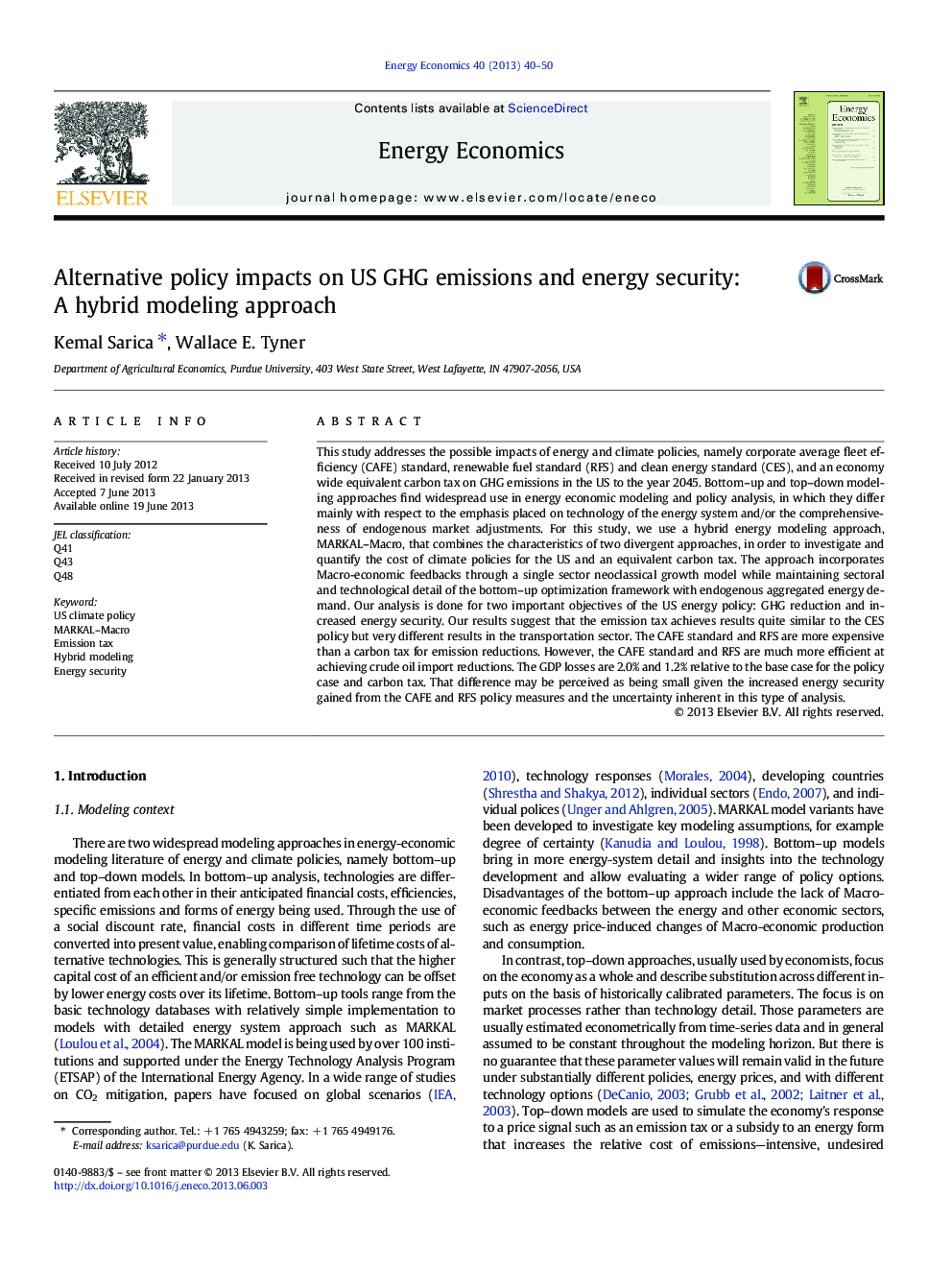| کد مقاله | کد نشریه | سال انتشار | مقاله انگلیسی | نسخه تمام متن |
|---|---|---|---|---|
| 5064835 | 1476723 | 2013 | 11 صفحه PDF | دانلود رایگان |
- Evaluates US impacts of three energy/climate policies and a carbon tax (CT)
- Analysis done with bottom-up MARKAL model coupled with a macro model
- Electricity clean energy standard very close to carbon tax for GHG reduction
- CAFE standard good at GHG and oil import reduction but costly for GHG reduction
- Policy set reduces GDP 0.8% more than CT, but policies reduce oil imports more.
This study addresses the possible impacts of energy and climate policies, namely corporate average fleet efficiency (CAFE) standard, renewable fuel standard (RFS) and clean energy standard (CES), and an economy wide equivalent carbon tax on GHG emissions in the US to the year 2045. Bottom-up and top-down modeling approaches find widespread use in energy economic modeling and policy analysis, in which they differ mainly with respect to the emphasis placed on technology of the energy system and/or the comprehensiveness of endogenous market adjustments. For this study, we use a hybrid energy modeling approach, MARKAL-Macro, that combines the characteristics of two divergent approaches, in order to investigate and quantify the cost of climate policies for the US and an equivalent carbon tax. The approach incorporates Macro-economic feedbacks through a single sector neoclassical growth model while maintaining sectoral and technological detail of the bottom-up optimization framework with endogenous aggregated energy demand. Our analysis is done for two important objectives of the US energy policy: GHG reduction and increased energy security. Our results suggest that the emission tax achieves results quite similar to the CES policy but very different results in the transportation sector. The CAFE standard and RFS are more expensive than a carbon tax for emission reductions. However, the CAFE standard and RFS are much more efficient at achieving crude oil import reductions. The GDP losses are 2.0% and 1.2% relative to the base case for the policy case and carbon tax. That difference may be perceived as being small given the increased energy security gained from the CAFE and RFS policy measures and the uncertainty inherent in this type of analysis.
Journal: Energy Economics - Volume 40, November 2013, Pages 40-50
